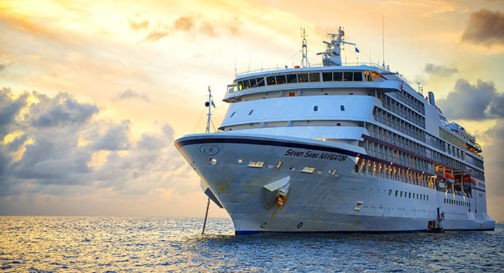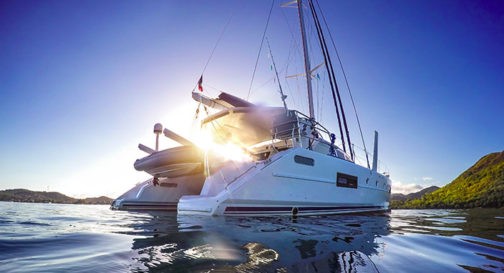What Is Admiralty Law?
May 15, 2023
What Do You Need to Know About Admiralty Law?
Admiralty law is the body of law that regulates disputes, torts, and offenses that occur on navigable waters. Navigable waters are any waterways that can be used for interstate or foreign commerce, such as tidal waters, rivers, harbors, and canals. Issues covered by admiralty law include, but are not limited to:
- Cruise ship accidents
- Injuries to crewmen on ships, tugboats, barges, ferries, tour boats, and other vessels
- Commercial diving accidents
- The harm caused by unseaworthy vessels
- Injuries to workers on docks, wharves, and piers
- Hazardous material accidents on waterways
In the US, admiralty law mainly focuses on cases involving maritime commerce, but it is often extended to include recreational boating incidents that occur on navigable waters as well. Because admiralty law is a separate area of law with its own unique governing statutes, it is vital for plaintiffs with these types of cases to seek out the services of a personal injury lawyer who is well-versed in the complexities of maritime accidents.
Are Admiralty Law and Maritime Law Different?
Law systems governing American maritime issues have existed since colonial times. At that point, admiralty law referred to the British admiralty courts that handled naval discipline, piracy, and similar cases. Maritime law was a separate entity that typically focused more on claims regarding the working conditions, wages, and injuries of sailors. Following the American Revolution, the Judiciary Act placed all maritime cases under the jurisdiction of the Federal Courts. Due to this action, the terms admiralty law and maritime law can be used interchangeably today.
Where Are Admiralty Law Cases Heard?
As noted above, the authors of the US Constitution delegated all admiralty cases to the jurisdiction of the Federal Courts. However, 28 US Code § 1333, also known as the Savings to Suitors Clause, allows most plaintiffs filing an admiralty law case to choose whether to file the claim in state or federal court. There are some rare situations where the maritime case must be brought to federal court, but the majority of claims for maritime accidents and injuries can be heard by either court.
The same legal principles must be applied no matter which court hears the maritime action. However, one advantage of bringing your case to state court is the right to have a jury of your peers hear the case. In federal court, most cases are decided by a judge. The question of which jurisdiction is best for your case can depend on a number of factors, but a knowledgeable maritime law attorney can examine your situation and help you decide the best way to proceed through the system.
What Statutes Specifically Apply to Maritime Personal Injury Claims?
The range of cases covered by admiralty law is vast. The exact laws that will govern your maritime personal injury claim will vary based on where it occurred, the cause of the accident, the status of your employment, and other details. Your maritime accident lawyer will explain your legal rights and options for your specific claim based on the applicable laws. Although every case is different, some statutes that commonly play a role in maritime actions include:
- Longshore and Harbor Workers Compensation Act (LHWCA): This federal act provides compensation for employees who work on navigable US waters or in adjacent areas, such as wharves, piers, and docks, and are not eligible for benefits under the Jones Act. The LHWCA covers injuries, including occupational diseases and illnesses caused by the worker’s job, regardless of who was at fault. Benefits provided by the LHWCA include payment for medical care, lost wages, vocational training for new positions, and disability payments, if applicable.
- Jones Act: Besides establishing regulations for maritime commerce, vessel safety and maintenance, and employment standards for companies who ship goods between US ports, the Jones Act extends the Federal Employer’s Liability Act (FELA) to seamen. The Jones Act gives seamen employed as part of the crew of a vessel the right to hold their employer liable if they are injured while performing their duties. A seaman can also bring a lawsuit against their employer if their injury was caused by an unseaworthy vessel or was exacerbated by a lack of proper medical care.
- Public Vessels Act (PVA): Prior to the PVA, the government had sovereign immunity from maritime personal injury lawsuits. Following the passage of the PVA in 1925, maritime workers could file suit against the government for damages related to injuries caused by employer negligence sustained on a public vessel. Examples of public vessels include ferries and other public transportation vessels, Coast Guard vessels, firefighting boats, and government-owned vessels operated by private contractors.
- Death on the High Seas Act (DOHSA): Maritime work can be hazardous. If a seaman dies aboard a ship that is out to sea and employer negligence is involved, surviving close family members can file a lawsuit for damages under DOHSA. This act also covers individuals who have died due to an aircraft crash in international waters. Compensation families may be able to seek includes funeral and burial expenses, loss of financial support, and counseling costs.
Why Is It Critical to Hire a Maritime Accident Lawyer for Your Case?
Admiralty law is a complex web of legislation, rules, international treaties, doctrines, and more. It can be overwhelming for individuals attempting to navigate this confusing system on their own. The Law Offices of Preston Easley has extensive experience with admiralty law cases and will fight to ensure you get the compensation you are entitled to under the law. However, time is of the essence when filing these cases because there are often short filing windows, and critical evidence can quickly disappear. To make certain you do not miss your opportunity to hold those responsible for your pain and suffering accountable, contact our law firm today at 310-361-9484.










